How much conflict developers - infographics on the results of the survey on "My Circle"
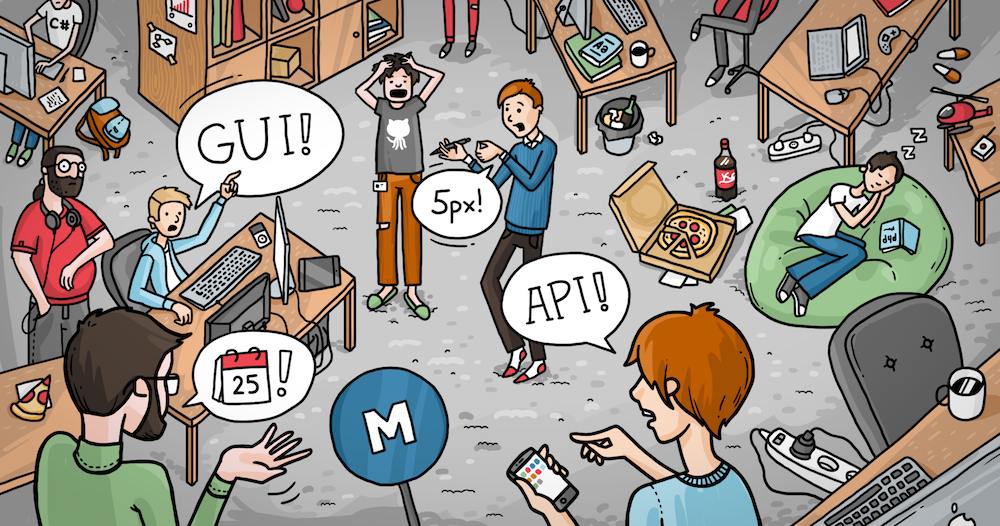
We conducted a survey among users of "Habra" and "My Circle", which was attended by more than 3,800 respondents. The questions were very diverse, but the goal is the same - to find out how, why and with whom programmers, designers, managers and other IT workers are in conflict.
What is your specialty?
Who exactly took part in the survey - we tried to cover all the professions and areas of work of the electronic front, breaking the developers into the most representative groups.
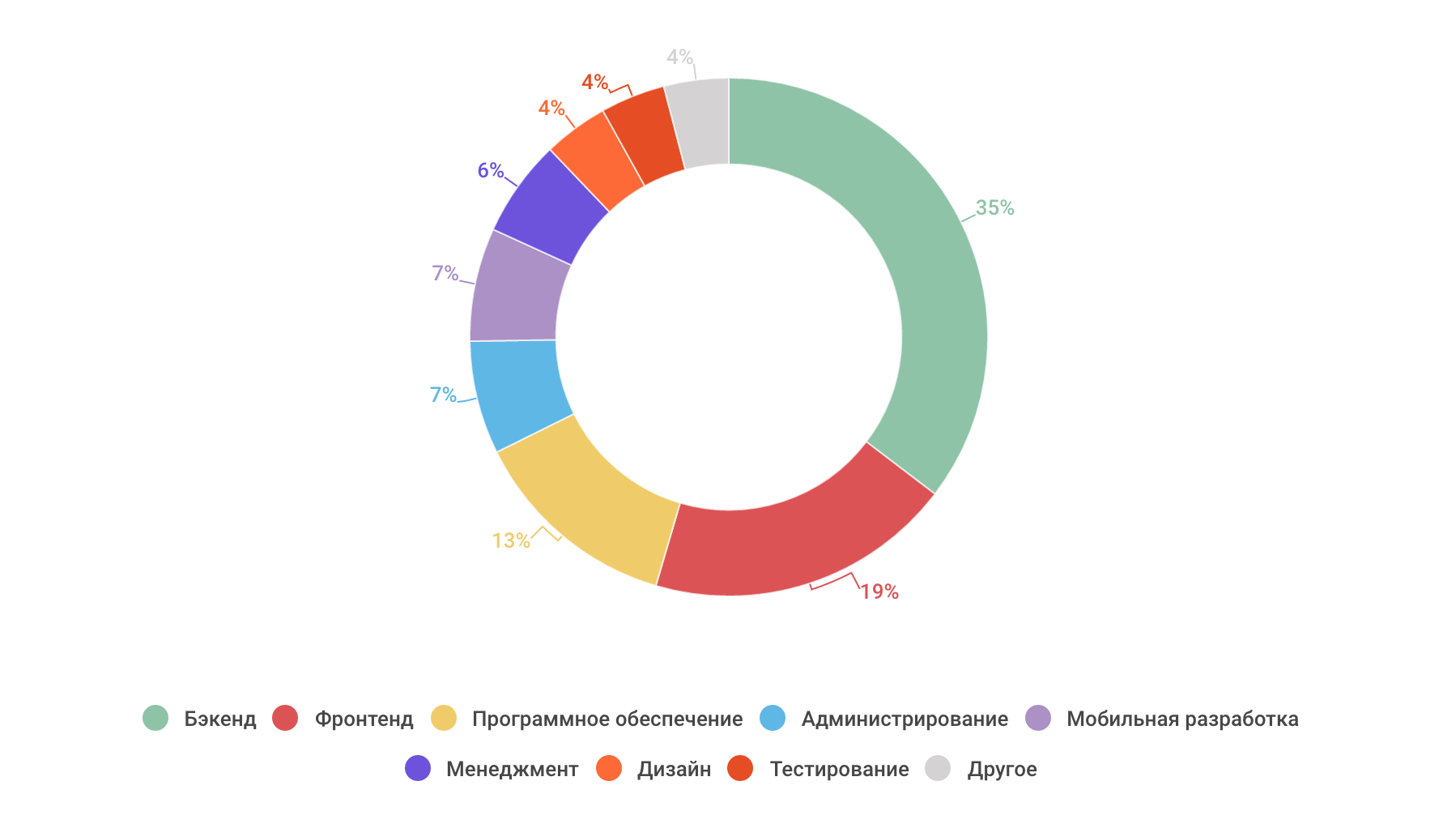
')
Do you have conflicts with colleagues?
Which IT specialist is the most controversial?
Most of the conflicts with colleagues are managers, administrators and designers: two of the three specialists in these fields of activity say that they have conflicts. Most likely, this is due to the need to work and interact with more colleagues.
Developers have the least conflicts, especially front-end vendors and back-tenders: only one of the two specialists in these fields indicated that they have conflicts.
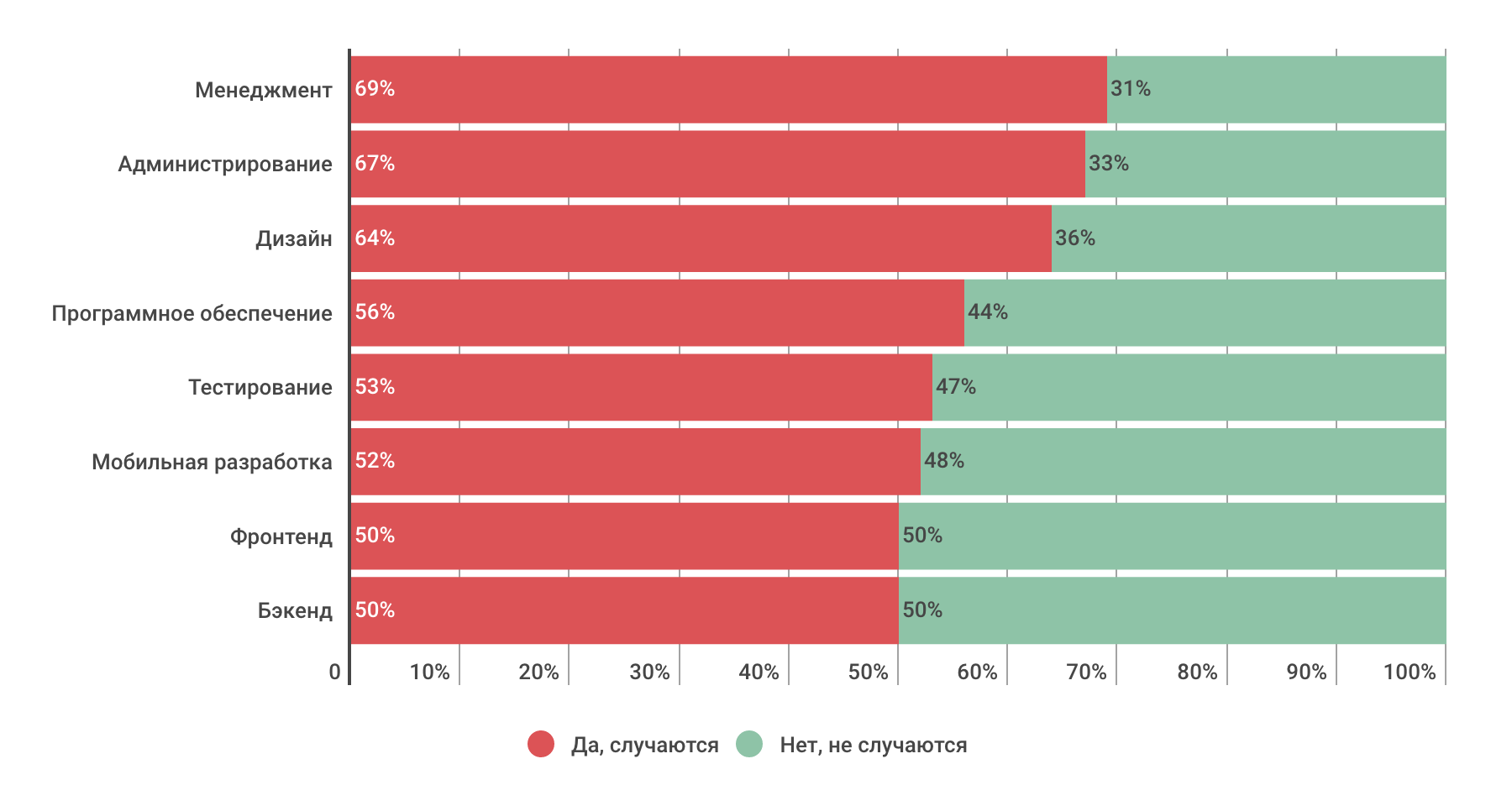
How often do you have conflicts and how much they have been over the past year?
In general, conflicts are infrequent and are resolved on the same day. However, every tenth they are often and last on debt. Someone even goes to the office, like a battle.
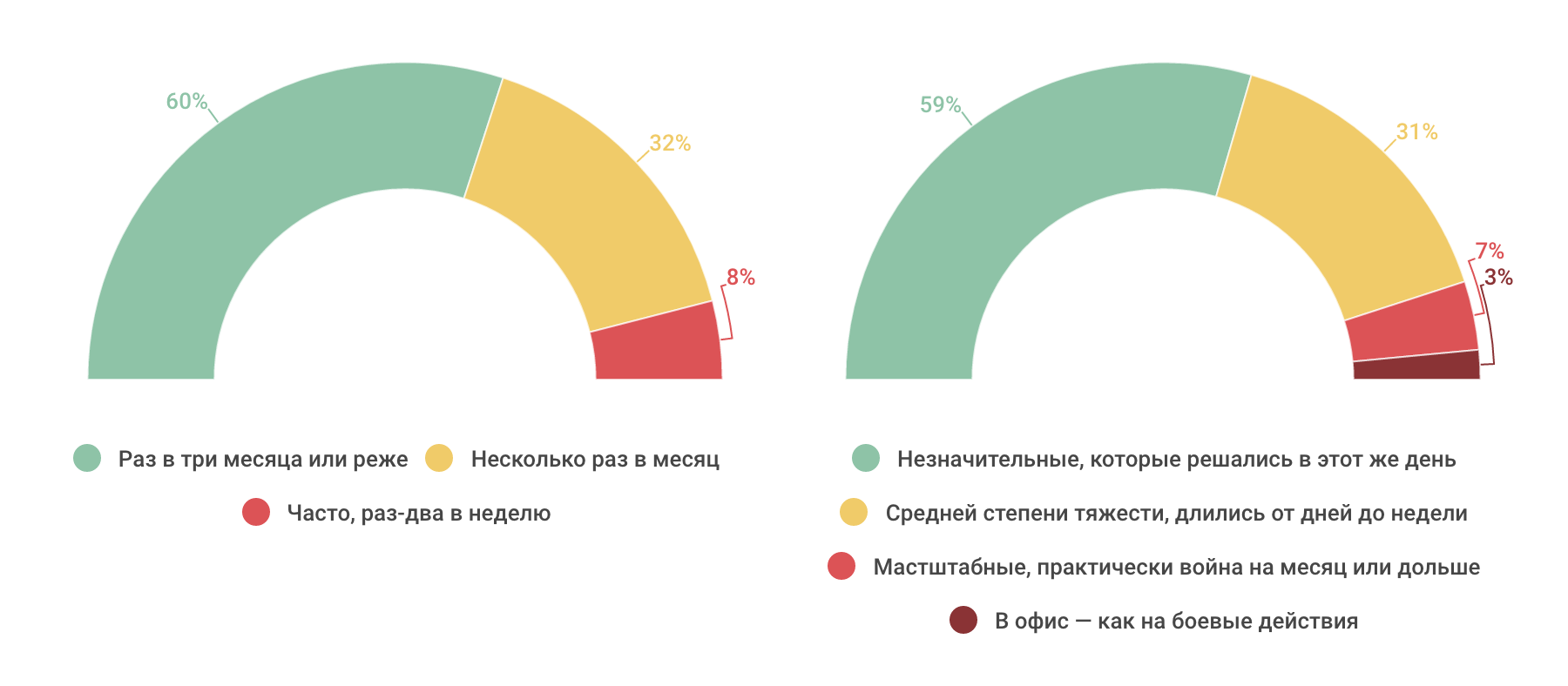
Do you have any unpleasant feelings from the conflict and have conflicts brought you serious consequences?
For every third, conflicts involve a long experience of negative emotions: from a day or more. But this can not affect the performance. However, only one out of every five speaks of serious consequences. Perhaps people simply prefer not to complain.
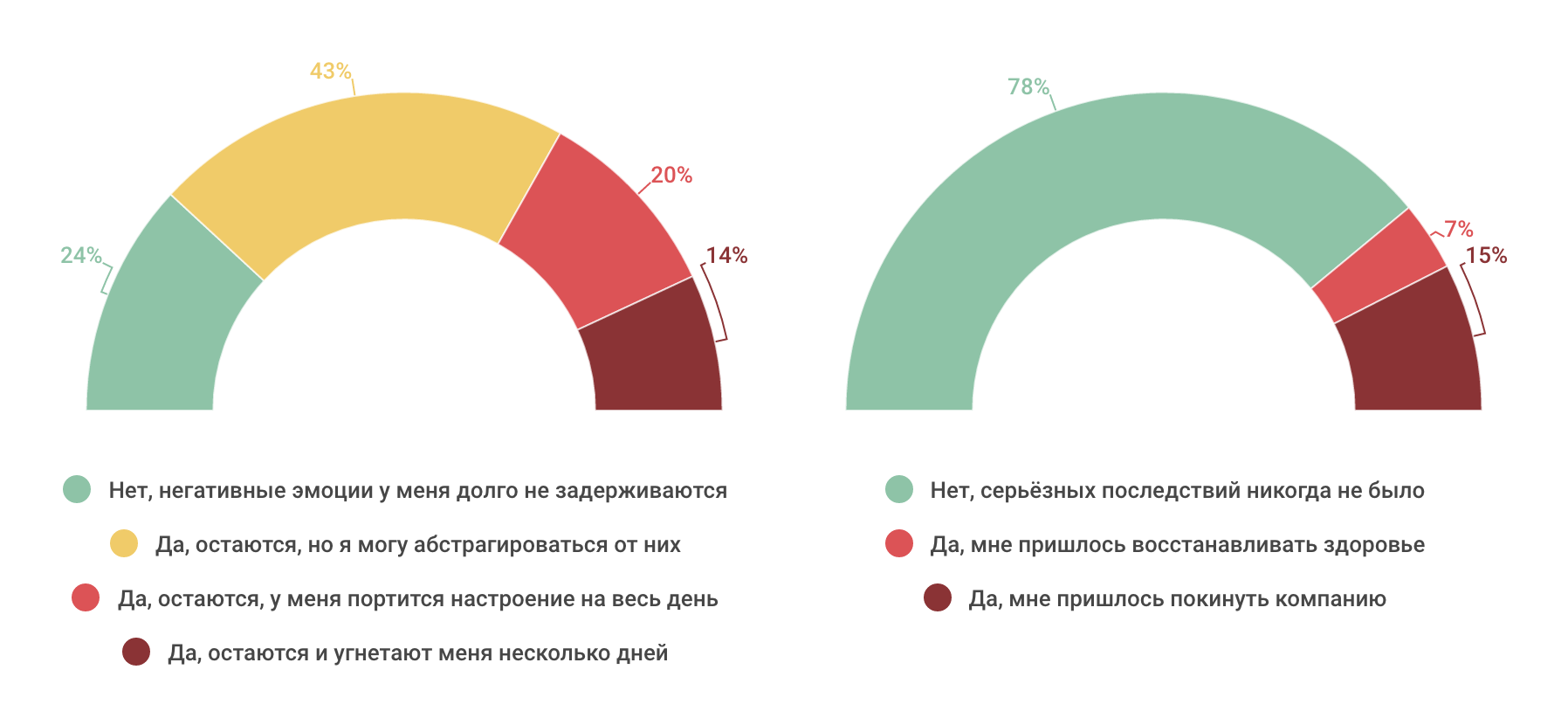
What position do you most often have in a conflict?
The overwhelming majority tries to communicate their point of view with arguments. However, every fifth person is sometimes inclined to raise his voice. And every tenth is generally inclined to ignore the conflicting side and remain silent.

What actions do you take after a conflict?
Every second gives the conflicting party a second chance and continues to communicate as before. Every tenth prefers to complain to the leadership. Also, every tenth bears plans for revenge. There are also few who prefer to understand the situation even outside the office.
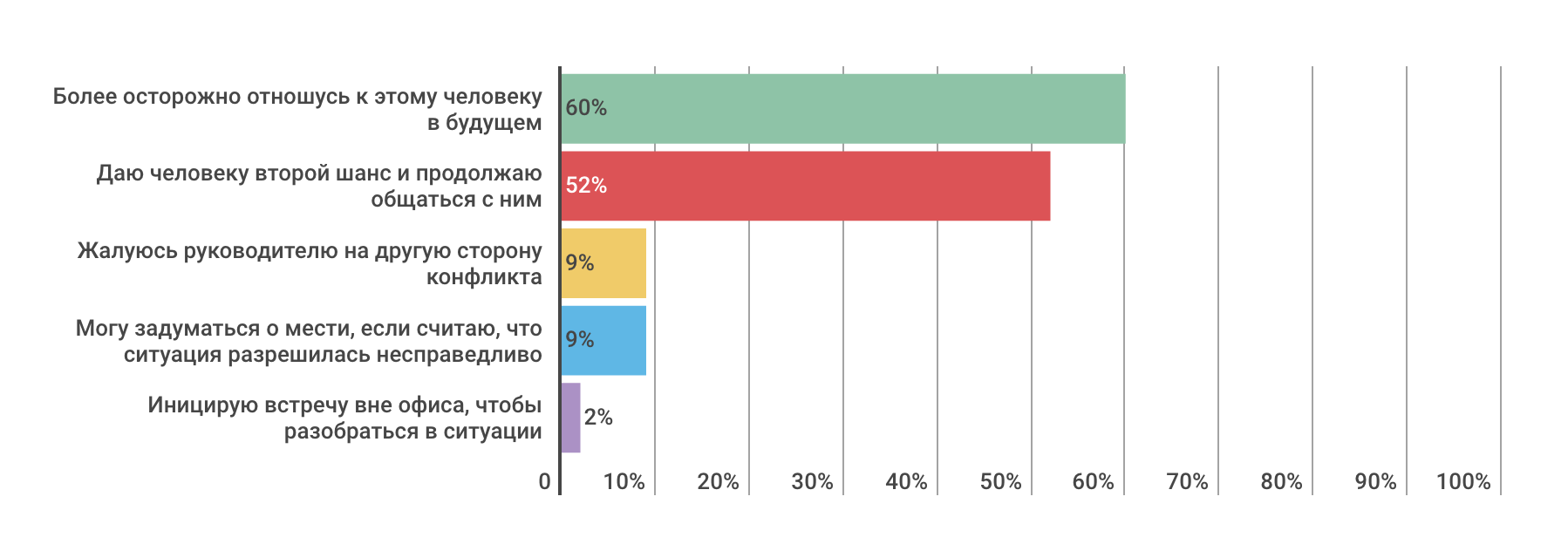
Why do you most often have conflicts?
Most IT professionals conflict over work tasks that they cannot agree on. Three or four of the five experts call this item as a possible cause of conflict.
The next most frequent source of conflict is when someone does not fulfill their obligations. In most fields, every second person calls it a possible cause of conflict. However, for administrators and managers, default is the same or even more frequent source of conflict than project disputes.
Administrators, testers and software developers, a little more often than others, point out causes that are not directly related to work as a potential source of conflict. This is evidenced by every fifth in these areas. Most likely, these are mainly personal factors.
And managers and designers more often than others face problems of subordination - every sixth of them talk about such conflicts.
Of course, there are always those who deny their own guilt in the occurrence of a difficult situation.
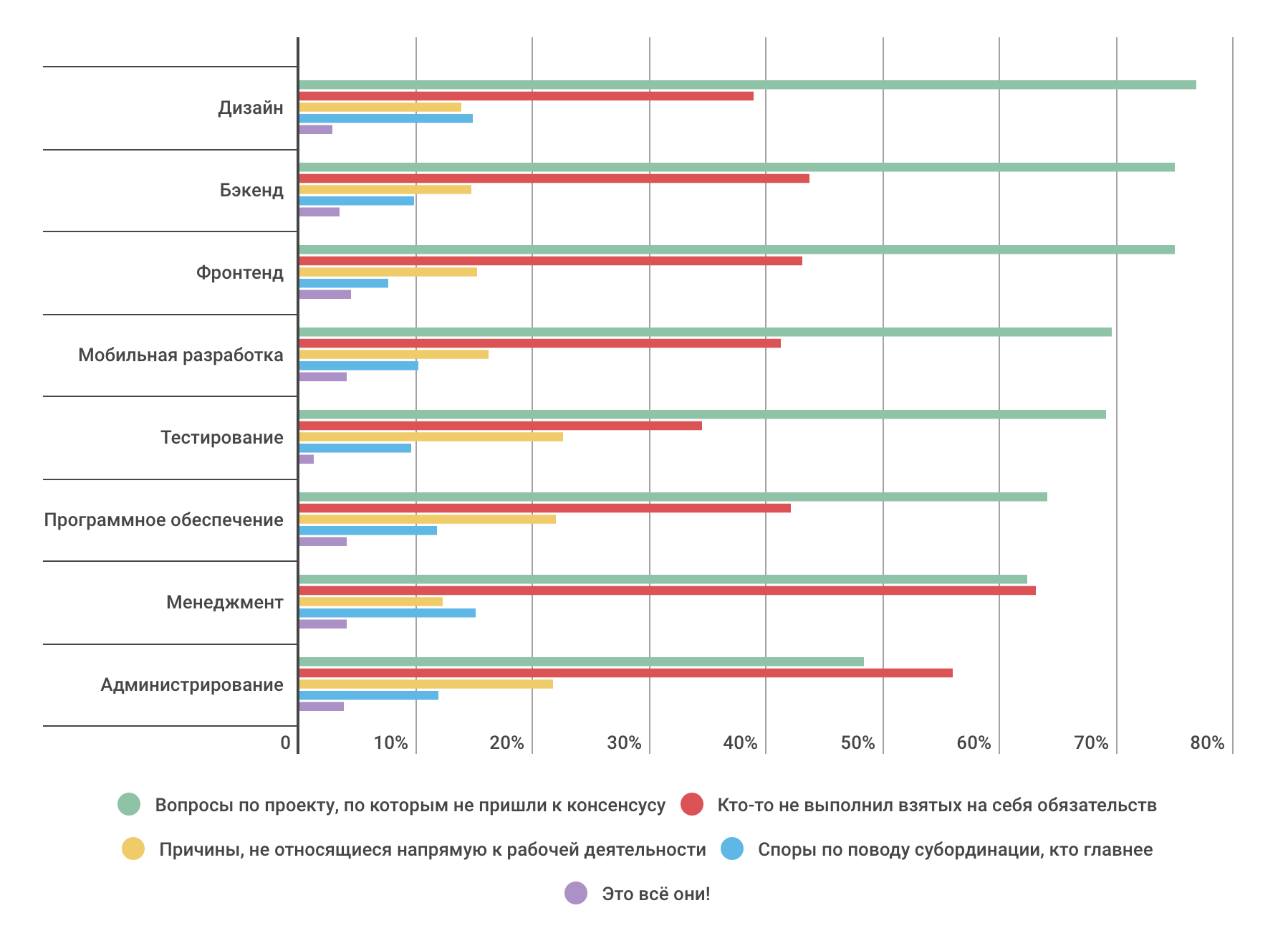
Who do you most often have conflicts with?
In most areas, conflicts often occur with developers. On average, every second person speaks about such conflicts. Least of all conflicts with developers from designers and administrators. Here, only one in three speaks of this kind of misunderstanding.
For most industries, conflicts with managers happen with approximately the same frequency: every second speaks about them. Managers and administrators themselves have slightly less conflicts with managers. And the least of all conflicts with the managers of testers. Here, only every sixth has designated the manager as a possible party to the conflict.
Mobile designers and front-vendors are in the most conflict with designers. About every third of these conflicts reported. And this is understandable - these developers, by the nature of their activities, are directly related to the results of designers' work.
Administrators, managers and software developers are in conflict with office administration most of all. Among administrators, two out of five speak of such conflicts.
Again, with administrators of personnel, administrators and managers are in conflict more than others. Every tenth among them speaks of such conflicts.
Also slightly higher than the average, the percentage of denial of conflict among administrators and software developers.
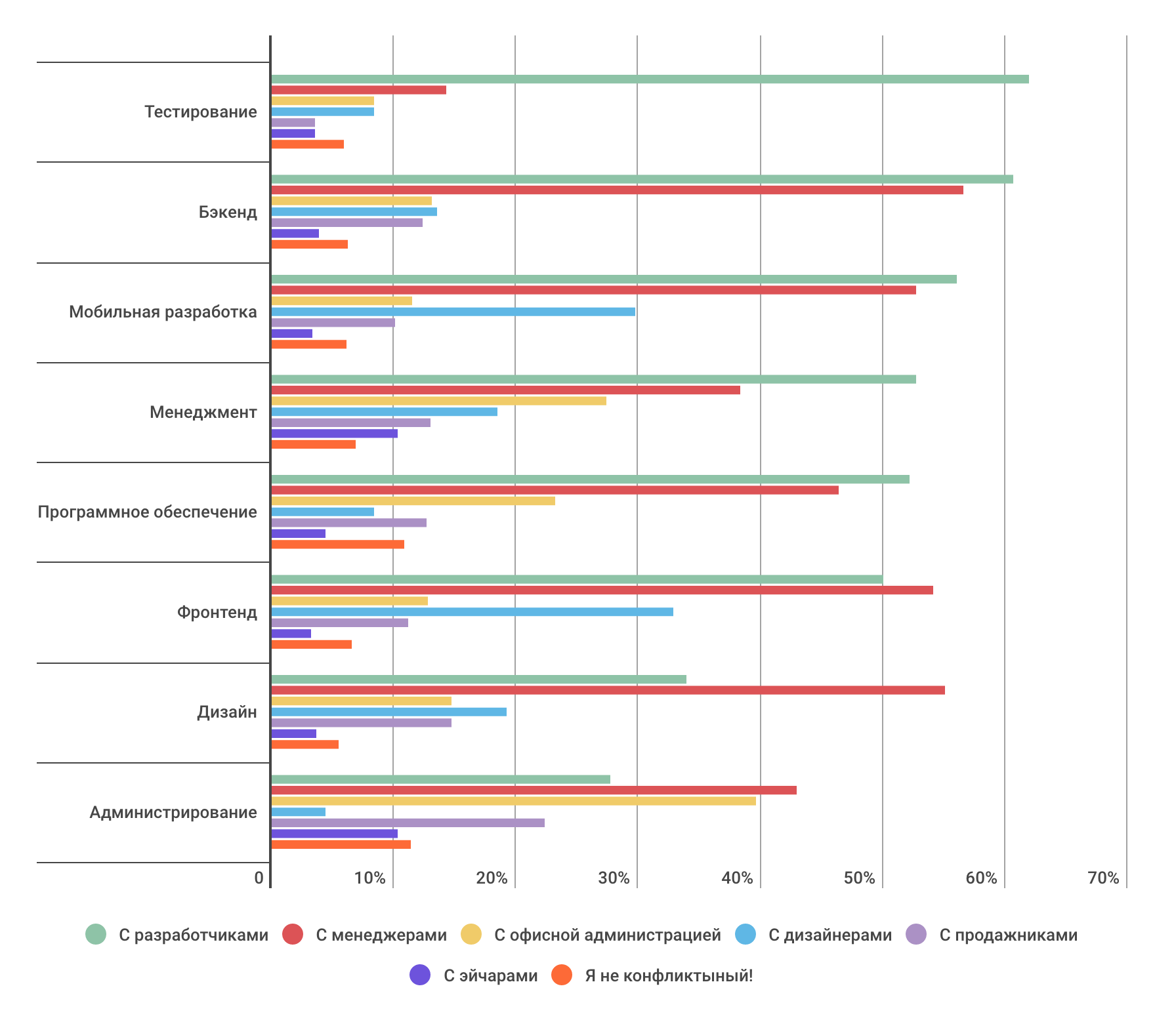
What rank do you have conflicts with?
In all areas of activity, most conflicts occur with colleagues. Every second or third of the five speaks of this. The exceptions are administrators, they mostly conflict with employees of other departments and with managers, and only one in three speaks about conflicts with colleagues.
With subordinates, managers clash more than others. And least of all, designers and developers of mobile applications.
But the designer’s conflict with himself, to all appearances, is the result of a heightened sense of beauty.
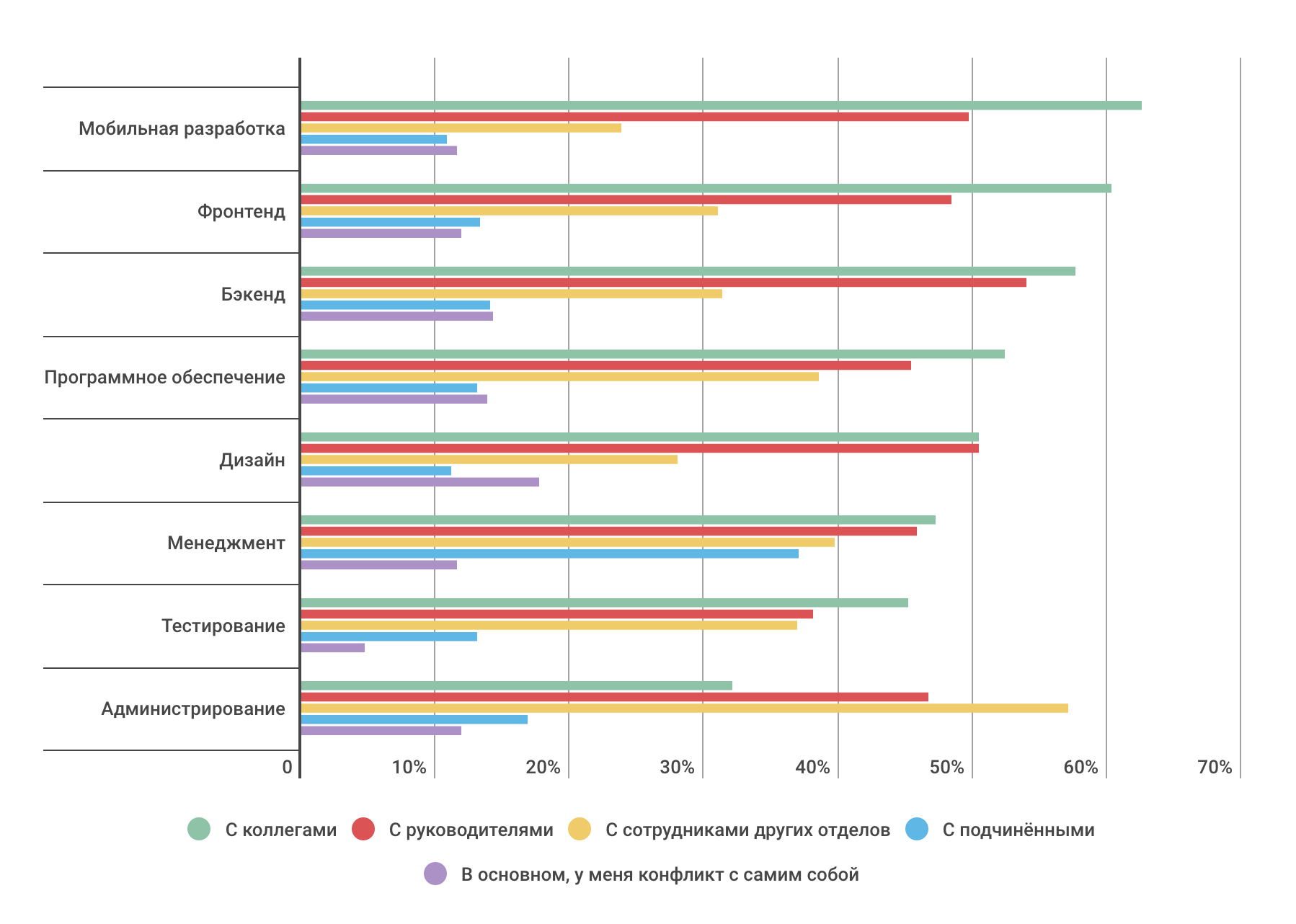
Is it comfortable for you to work in the current team and how likely you will be changing jobs because you don’t like the team?
The vast majority feels comfortable in the current team. In addition, every third person is inclined to change jobs in the event of a serious conflict or a high degree of dissatisfaction with the team.
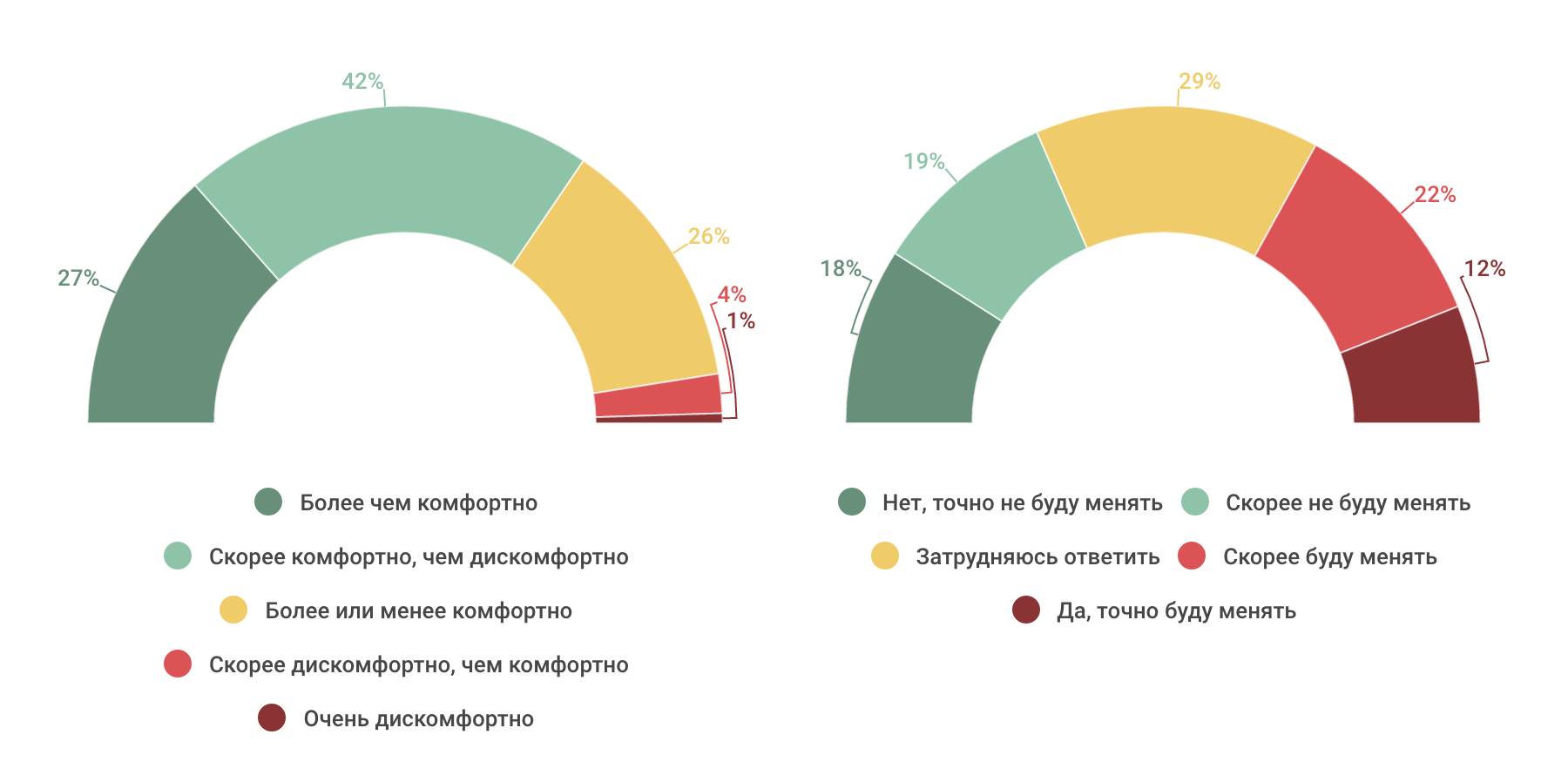
What negative evaluations did you receive from colleagues?
More than half (55%) of respondents do not know anything about negative assessments towards themselves. Every fifth non-talkative. Every sixth with a strange sense of humor. Every eighth unorganized. Every tenth unfriendly.

What positive marks did you get from your colleagues?
They do not know anything about positive assessments in relation to themselves much less - only 30%. Two out of five are smart or responsible. Every fourth initiative. Every fifth attentive or sociable. Every sixth positive.

Treat colleagues with understanding!
All charts are prepared using the service infogr.am .
Source: https://habr.com/ru/post/310048/
All Articles